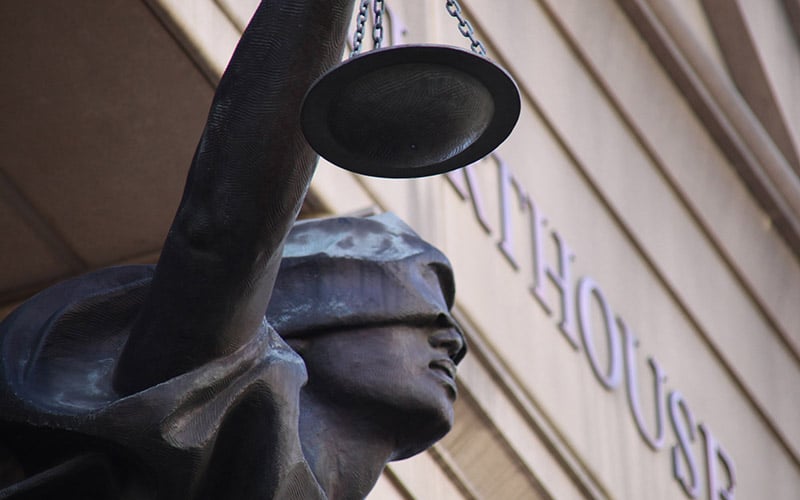
A federal appeals court upheld a lower court’s decision to throw out a suit by three Phoenix police officers, who said demanding DNA samples from them without a warrant in the investigation of Sgt. Sean Drenth’s shooting death violated their constitutional rights.(Photo by Tim Evanston via flickr/Creative Commons)
WASHINGTON – A federal appeals court said Monday that Phoenix police were within their rights to take DNA samples from officers responding to the 2010 shooting death of a fellow officer, Sgt. Sean Drenth, near the State Capitol.
A three-judge panel of the 9th U.S. Circuit Court of Appeals rejected the claims of three officers that forcing them to provide genetic samples violated their Fourth Amendment protections against unreasonable search and seizure, calling it “hardly unreasonable” to ask for the DNA.
The ruling upholds a 2013 district court decision tossing out the officers’ lawsuit.
The Phoenix City Attorney’s Office did not immediately respond to a request for comment on Monday’s ruling. But an attorney for the officers said he was disappointed in the court’s opinion.
“We’re reviewing the decision and considering the next steps,” said Michael Bekesha, an attorney with Judicial Watch, which represented the three officers before the appeals court.
The case began on Oct. 18, 2010, when Drenth was found dead of a gunshot wound to the head in an empty lot near the State Capitol. A shotgun was across his chest, a second gun near his feet and his service weapon was just beyond the lot, with his patrol car in the center of the lot, according to court documents.
A Phoenix police spokesman said Monday that the case is still open, “pending further information.”
The court said investigators tried to determine if it “was a homicide staged to look like a suicide or a suicide stated to look like a homicide.”
More than 300 officers responded to the scene and about 100 officials, including 50 police officers, entered the area where the body was discovered, the court said. When investigators found DNA evidence on the guns and on Drenth’s car, they sought genetic samples from the 50 officers who entered the lot in an attempt to rule them out as the source of the DNA.
Five officers refused to give DNA samples, despite assurances from investigators that they were not suspects and that tracking of their radios and patrol cars had confirmed their whereabouts on the night of Drenth’s death. Investigators also said the DNA samples would only be used in the Drenth case and not in any future investigations.
When the officers still refused, investigators got a court order compelling them to comply. The officers did, but three of them then sued in federal court, arguing that the detectives failed to obtain search warrants before taking DNA samples, violating their Fourth Amendment rights.
Their suit sought nominal damages of $1 and an order that the department destroy their DNA samples.
“Even if the DNA had been a match, the police still wouldn’t have been closer to solving the crime,” Bekesha said.
But a U.S. District Court judge disagreed, ruling in 2013 that there was “nothing unreasonable” about the department’s search of the DNA “or the manner in which it was conducted.” She dismissed the suit, sparking the appeal to the 9th Circuit.
The appellate judges agreed with the district court, saying that even though the court order was not strictly a warrant, it “fully satisfied the warrant requirement of the Fourth Amendment.”
“It was hardly unreasonable here to ask sworn officers to provide saliva samples for the sole purpose of demonstrating that DNA left at a crime scene was not the result of inadvertent contamination by on-duty public safety personnel,” said the ruling written by Circuit Judge Andrew Hurwitz.